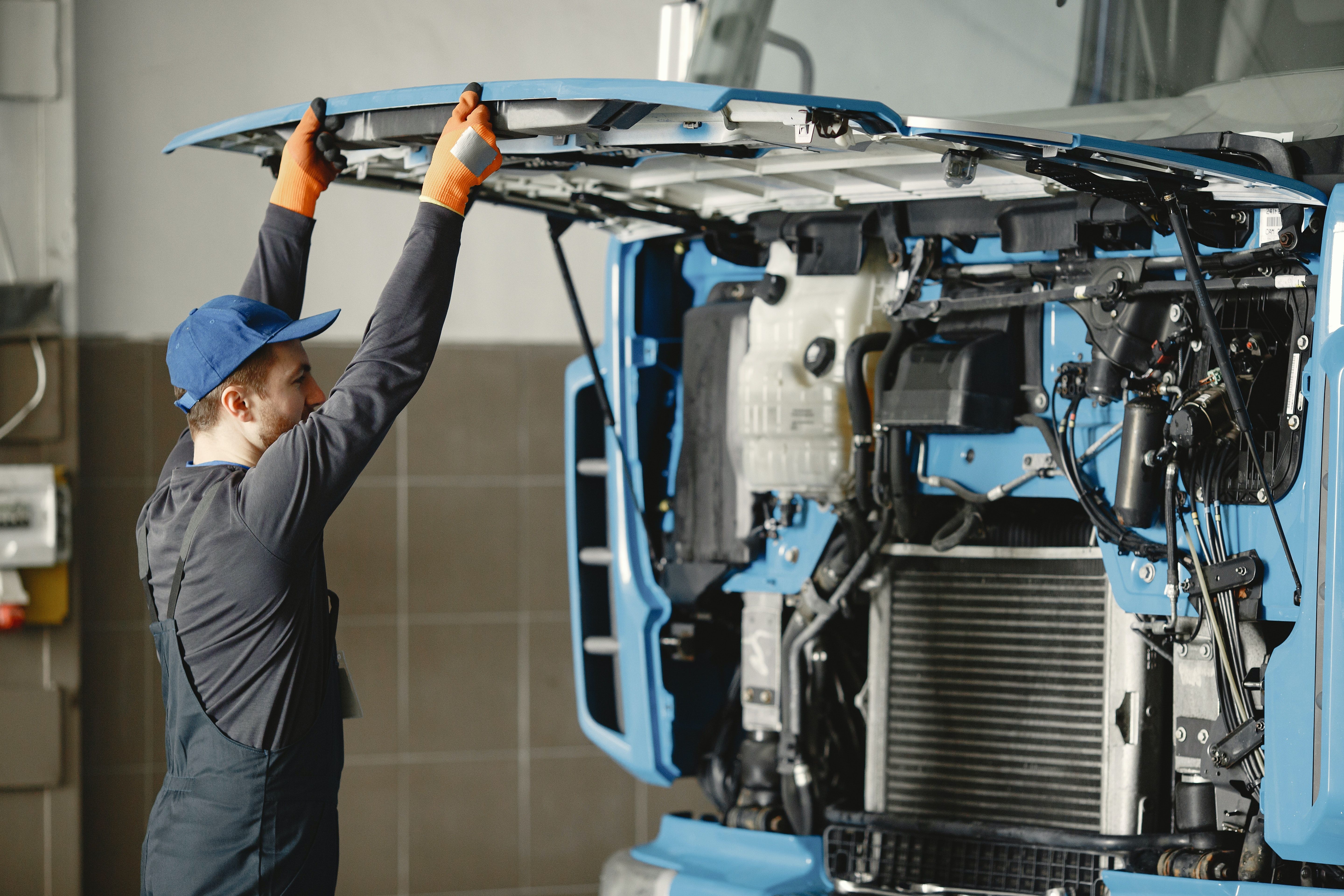
Top Reasons Why Your Truck Won’t Start
Date: 11/01/2023
So your truck won’t start and you have no idea what the problem could be…
Well, there are various reasons why this might be happening. It could be a dead battery or perhaps the alternator just needs to be replaced. The truth is, it could be a lot of things. Dealing with a faulty truck can be very frustrating, especially if you're not sure what's happening and you use the truck for business purposes. As the saying goes, ‘no business, no money’.
Don’t worry! In this article, we'll talk about some common reasons why your truck won't start and how to solve them.
Do you need a new truck? Find a wide range of trucks for sale on Truck & Trailer.

Photo by Gabriel Santos on Unsplash
1. Dead battery
A dead battery can be very frustrating and a costly problem for your business. It can prevent you from delivering goods to your clients, attending to emergency situations, or seeing to general business-related tasks. Truck battery problems can strike without warning, and they are considered to be the most volatile components in the vehicle. Batteries only have a short shelf life, and they are prone to dying due to various factors such as corrosion, faulty connections, and disuse.
The best way to avoid having to deal with a dead battery is to have it regularly inspected. Alternatively, have a battery store's contact information saved in your phone for when a problem with yours occurs.
Types of battery problems
- Faulty connection
When it comes to truck batteries, there are two ports or posts. They stick up from your battery and are made of either negatively or positively charged materials. There are cables that go through these posts and allow you to start your truck.
The connections between the wires and the ports can become loose or break over time, which can prevent your truck from starting. If this happens, the power from the battery will not be transferred to the starter. As a result, if you try to start your truck, nothing will happen. So, you check your connections to see if that might be the issue.
- Corrosion
Another issue that can cause a bad connection is corrosion, which happens over time. The same ports that can develop loose connections can also lead to corrosion. Moreover, the connection between the ports and the battery deteriorates as corrosion sets in. This causes less metal-to-metal contact, and this makes it harder to transfer power to the starter.
If your battery is experiencing this issue, it's important to check the ports to make sure they're not corroded. The best way to go about this is to clean them often.
- Disuse
If your truck has been idle for an extended period of time, then the battery might not have enough power to start it. The truck's electrical systems are powered by the alternator once the vehicle's battery has started. This component powers the truck's electrical systems and recharges the battery.
To avoid battery failure due to disuse, ensure that the truck is driven at least once every week or so, even if it’s just a short distance.

Photo by abdul rohmad on Unsplash
2. Bad alternator
The alternator is a vital component of your vehicle's charging system. It powers the electrical system and also charges the truck's battery. Moreover, if your truck is not starting and you hear a loud squealing sound, that could be because of a faulty alternator.
The life of an engine's alternator is longer than that of other components such as the battery itself. It typically lasts for about 8 to 12 years. If your vehicle's alternator fails, it will prevent the engine from charging. There are also other signs that indicate your car's alternator is failing.
Here’s how to know if an alternator is faulty:
- Burning smell
Bear in mind that the alternator works with a belt, and when the belt is not working properly, it will generate extra heat and friction. As a result of this, the extra heat and friction will eventually lead to the smell of burning rubber.
- Dim lights or dashboard
You will notice that your headlights are dim or that the dashboard is not as bright as it should be.
- Whining noises
The alternator spins to generate power. If something breaks or wears out, it can make whining sounds. If you suspect that the issue is with the alternator, it’s important to get in touch with your mechanic who will be able to diagnose and resolve the issue.

Photo by Phenyo Deluxe
3. Bad timing belt
The timing belt is an internal component of the engine. It's a rubber strip that's used to rotate the crank and cam in the engine at the right time. Your vehicle's engine will not function as it should if the timing is off. You may also hear a clicking or ticking sound coming from the hood while the starter motor is engaged. This issue is usually caused by a faulty timing belt.
4. Faulty fuse
The truck fuse is an essential component of your vehicle's electrical system. If your fuse is faulty or there are damaged links, your vehicle will not start. If the fuse is blown or damaged, it can prevent the power from reaching the ignition switch, which is required to start the vehicle.
Check your truck's manual to locate the fuse box. If you see a blown fuse or visible wire damage, you should immediately contact a mechanic to have it fixed.
5. Clogged Fuel Filter
When the fuel filter is not working properly, it can prevent the fuel from going to the engine. If this happens, a replacement is usually needed. To prevent this issue from happening in the future, you should replace the fuel filter every two years or 30 000 miles.
Common signs of a clogged fuel filter
- The most common sign that a fuel filter is defective is the lack of oil supply to the engine. A dirty filter can cause this issue, but a clogged one can completely fail and the engine won’t start at all.
- In most cases, the engine will start normally but will stop working when you try to stop. This is because the oil will be able to get through the filter but it will weaken when the truck is idle. If the vehicle sputters while driving at low speeds, it could be a sign that the fuel filter is not working properly.
- If foul odours are coming from your truck's exhaust, it could be a sign that its fuel filter is not in proper working condition. It could also mean other problems are at play. Having a professional inspect your vehicle could help prevent further damage.

Photo by Gustavo Fring
Although there are many reasons why your truck won't start, you can prevent them before they become issues that affect your business. In the event that it does, it's important to get help in a timely manner. If you’ve been considering getting a new truck, find a wide range of trucks for sale on Truck & Trailer.






